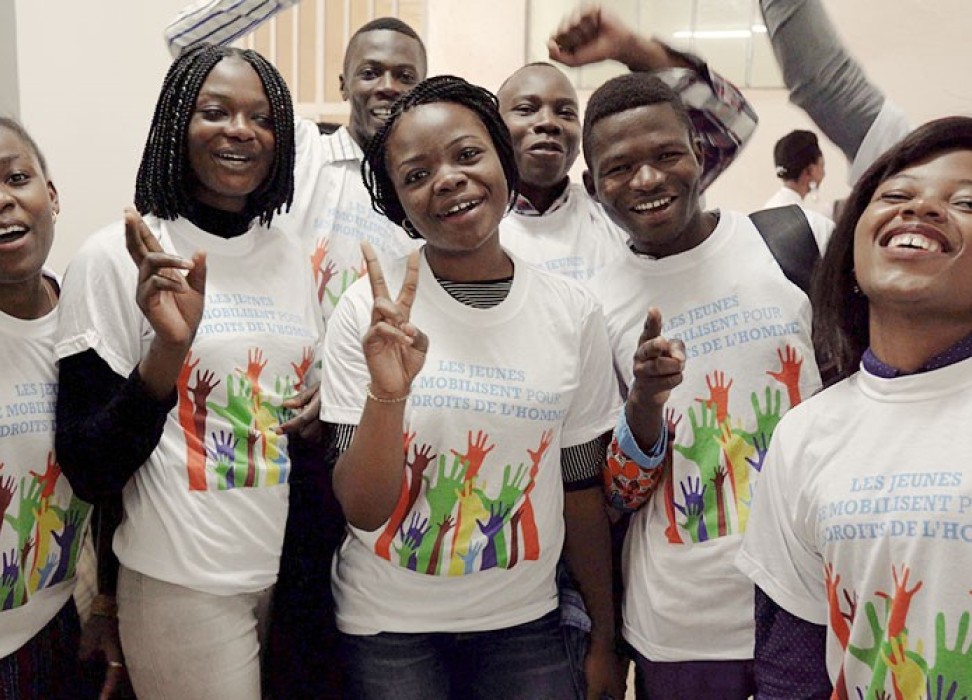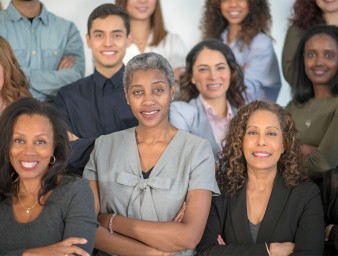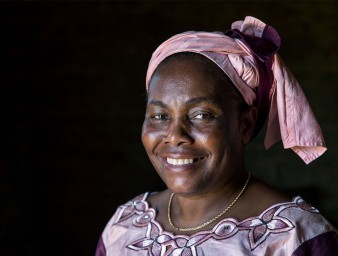Creating the first, women-led student Human Rights Club in South Kivu, DR Congo
01 October 2020

The Université officielle de Bukavu (Official University of Bukavu) is working with the Joint UN Joint Human Rights Office in Bukavu, Democratic Republic of the Congo, to create a space for students from its various faculties to foster their engagement for human rights.
The biggest university in South Kivu Province, hosting some 15,000 students, offers a human rights curriculum in the faculty of Law. However, the University authorities have recognised the need to go beyond the academic environment and establish an outreach program that addresses the human rights issues affecting the larger community.
Joseph Mufariji Chishami, a student in Economics and Management, says that a core aspect of human life is human rights, and one should always aim at protecting them.
“We live in a society where people talk about human rights but are not really engaged in defending them,” he says. “I wanted to participate in the Club to see how I can contribute to the betterment of my country.”
The Club’s main objective is to educate students on the standards and principles of the Universal Declaration of Human Rights. The students will, in turn, spread that knowledge around them and support a movement of future human rights defenders who will be able to denounce violations.
The UN Joint Human Rights Office plans to engage in the same way with three other universities in the province. Each club will comprise twenty-five members and three supervisors.
Geraldine Chin Kongnyuy, Coordinator of the UN Joint Human Rights Office in Bukavu, explains that human rights violations are reported in the province every day.
She says that creating human rights clubs in educational institutions will strengthen students’ capacities to be more proactive when faced with issues of human rights abuses and violations. They will learn basic human rights promotion and protection skills and hence contribute to enhancing respect for human rights in their communities.
“We want to use human rights clubs to challenge and educate these youths so that they know their rights and their responsibilities and can constructively engage in the life of their communities,” Chin Kongnyuy adds. “Beyond the world of politics, we want to help them to be pro-active citizens and to be able to defend their rights and the rights of others responsibly.”
One particularity of Bukavu’s first human rights club is that its administrative committee includes more women than men, in a society that generally relegates women to the background – and one in which data shows that most victims of sexual and gender-based violence in South Kivu are women.
“My fellow students were open enough to hand over this responsibility to a woman, and I appreciate it,” says Jessica Hwaba Bizibuhe, a law student who was elected as the club’s first president. “I always encourage women to first be more confident in our own abilities. Since others already have the willingness to promote women, we too, as women, should join in the struggle and not sit back.”
Jessica highlights the fact that the UN Joint Human Rights Office and the Rector of the university chose to include in the Club students from various faculties, not solely law students. Thus, the students deemed it necessary to first improve their competencies in human rights.
“This is one of the goals of the Human Rights Club: to train and raise awareness,” she adds. “Human rights concern every human being. We thought we should first train our fellow students in academia and then go outside that environment to also train those who do not have the privilege of attending university.”
During the official installation of the first members of the Club, students expressed concern about how the UN Joint Human Rights Office would protect them against reprisals from local authorities. For Geraldine Chin Kongnyuy, this starts with training and support.
“We will take them through advocacy processes, how to monitor, report, and denounce violations, and how to work with State security agents,” Chin Kongnyuy says. We organize training sessions for the police and the military on a regular basis and it is in our plan to include these students and their representatives in these training programs.”
“Our intention is to enable both students and State agents to understand that they are all partners in a common endeavour: the promotion and protection of human rights,” she says, adding that she hopes to garner enough support to expand the initiative to all universities in the province.
Video
1 October 2020



